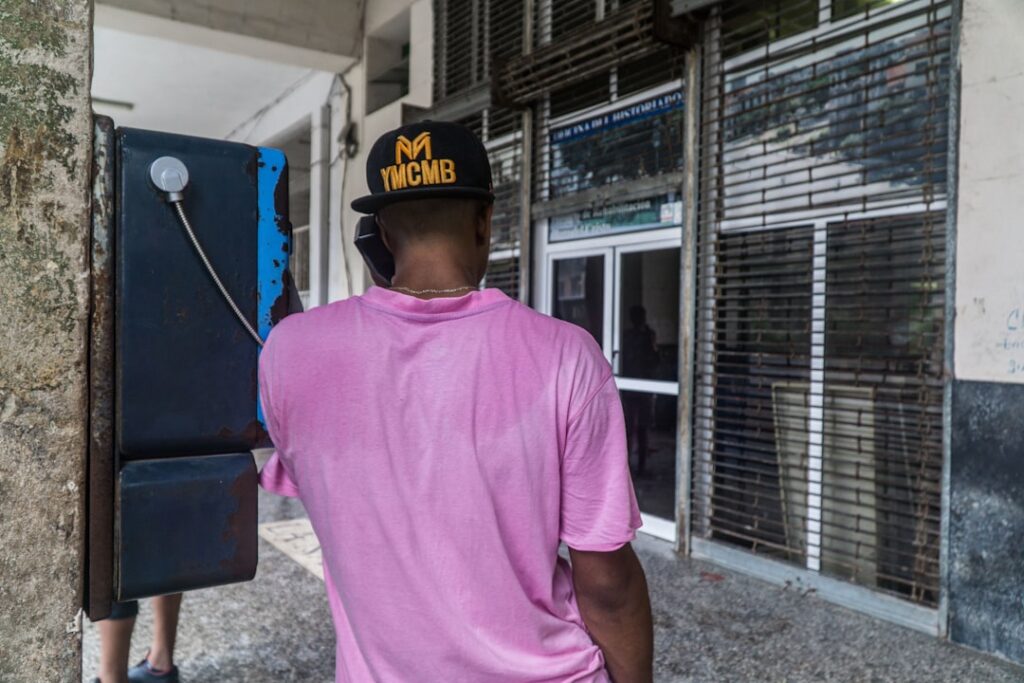When applying for a job, creating a CV and cover letter that stand out is crucial. Clear and succinct highlights of your accomplishments, experiences, & pertinent skills should be included in your resume. It should be customized to the particular job you are applying for and highlight your qualifications as a compelling candidate. To illustrate your impact from prior roles, use action verbs and measurable accomplishments.
Key Takeaways
- Tailor your resume and cover letter to the specific job and company you are applying for to stand out from other applicants.
- Research the company and the position thoroughly to show your genuine interest and understanding during the interview process.
- Network with current or former employees to gain insights and potentially get a referral for the position you are applying for.
- Prepare for common phone interview questions by practicing your responses and having examples ready to showcase your skills and experience.
- Set up a professional phone interview environment by finding a quiet space, testing your technology, and dressing professionally to get in the right mindset.
To further prevent typos & grammatical errors, carefully proofread your resume. By highlighting particular experiences and abilities that make you an excellent fit for the position, your cover letter should enhance your resume. In addition, it ought to show that you are knowledgeable about the business and the role you are seeking.
If at all possible, address the cover letter to the hiring manager & take advantage of the chance to highlight your personality and enthusiasm for the position. Rather than utilizing a template, make sure each cover letter is tailored to the particular position you are applying for. Attention to detail and a deep comprehension of the position and business you are applying to are necessary for creating a CV & cover letter that stand out. You can improve your chances of getting an interview and making an impression on prospective employers by taking the time to customize these documents to the particular role. With bullet points to highlight your most important qualifications and distinct headings to make your resume easy to read, it should be well-organized.
Make sure your resume is formatted professionally and contains pertinent keywords from the job description to help it get through applicant tracking systems. You should be enthusiastic about the position and the company in your cover letter, making it personal and interesting. This is your chance to highlight your experiences and talents that make you a perfect fit for the position and to share your excitement for the chance. Making an impression on prospective employers & landing an interview for the job of your dreams can be achieved by creating a CV and cover letter that stand out. Researching the business & the position you’re applying for is essential before an interview.
| Tip | Trick |
|---|---|
| Customize your resume | Tailor your resume to the job description |
| Research the company | Understand the company’s values and mission |
| Practice common interview questions | Prepare for behavioral and situational questions |
| Follow up after applying | Send a thank-you email after submitting your application |
This will enable you to better comprehend the company’s values, mission, and culture in addition to helping you prepare interview responses that are in line with the qualities the company is seeking in a candidate. To learn more about the company’s offerings, news, and noteworthy projects or accomplishments, start by visiting its website & social media pages. Insights into employee experiences and company reviews can also be obtained by using sites like Glassdoor or LinkedIn. Knowing the particular duties and requirements of the role you are applying for is crucial, in addition to doing research on the organization.
Examine the job description thoroughly, making a note of any essential abilities or requirements that are stated. This will assist you in preparing real-world examples that show how you fulfill these requirements. You can better explain why you are a good fit for the role during the interview by doing extensive research on the business and the position.
One of the most important steps in getting ready for a job interview is researching the company & the role. You may exhibit your sincere interest in the company & your knowledge of its industry by becoming acquainted with its background, core principles, and most recent advancements. Further, by being aware of the position’s particular requirements, you will be able to customize your answers during the interview to emphasize how your qualifications fit the company’s needs.
It is essential to conduct research on the business & the position you are applying for in order to be ready for a job interview. Learning about the company’s history, core principles, & accomplishments will show that you have done your research and that you genuinely want to work for them. Also, knowing the particulars of the job will help you prepare pertinent examples from your own experiences that highlight your qualifications for the position. You can boost your confidence before the interview and raise your chances of making an impression on possible employers by doing extensive research on the business and the role.
Finding out about the company culture, work environment, & hiring procedure through networking with current or past employees can be very beneficial when applying to jobs. To make connections with people who are employed by the company now or in the past, use LinkedIn or your professional network. Inquire about their satisfaction with the company, the aspects of their job that they find enjoyable, & any advice they might have for someone going through an interview.
Creating these relationships may also result in internal recommendations, which may improve your visibility to hiring managers. Networking can assist you in learning about possible job opportunities that might not be publicly advertised, in addition to providing you with insider knowledge about the company from current or former employees. Developing ties with people in the organization may lead to the knowledge of future vacancies or recommendations for roles that suit your qualifications & interests. Making connections with people who are or were in your employ can help you find opportunities and useful information that will help you in your job search.
Making connections with a company’s current or past workers can give you a wealth of information about its hiring practices, work culture, and atmosphere. You can obtain a more comprehensive knowledge of the company’s values and the experience of working there by establishing connections with people who have firsthand knowledge of the organization. Moreover, cultivating these relationships may result in internal recommendations, boosting your chances of attracting hiring managers’ attention and obtaining an interview.
One of the most crucial parts of getting ready for a job interview is networking with previous or current coworkers. You can learn a great deal about the company’s culture, values, & working environment by getting in touch with people who have worked there or are currently employed by it. Moreover, cultivating these relationships may result in internal recommendations, which raises your profile in the eyes of hiring managers and gets you an interview for a role that fits your preferences and qualifications. If you want to come across as confident and capable during the interview, you must prepare for frequently asked phone interview questions. In phone interviews, questions concerning your qualifications, past experiences, abilities, and interest in the job are frequently asked.
You can make sure you can clearly communicate your qualifications & experiences during the interview by practicing your answers to frequently asked questions, such as “Tell me about yourself,” “What are your strengths and weaknesses,” “Why are you interested in this position,” and “Can you provide an example of a time when you faced a challenge at work?” By planning and organizing your thoughtful responses to these questions in advance. Apart from getting ready for standard phone interview questions, it’s crucial to investigate the organization and the particular position to be ready for any job- or industry-specific queries that might come up. It can be helpful to go over the job description and comprehend the essential duties and credentials needed for the role in order to prepare pertinent examples from your own experiences that show how you meet these requirements.
You can boost your confidence before the interview and raise your chances of making an impression on possible employers by thoroughly preparing for frequently asked phone interview questions. It’s essential to prepare for frequently asked phone interview questions if you want to come across as competent & confident during the interview. You can make sure you can explain your qualifications clearly over the phone by practicing your answers to frequently asked questions about your background, experiences, skills, and interest in the role. You can prepare pertinent examples from your own experiences that highlight how you are qualified for the role by researching the company and comprehending the particular requirements of the role. To come across as confident during the interview, you must prepare for frequently asked phone interview questions. You can make sure you can clearly explain your qualifications over the phone by practicing your answers to frequently asked questions about your background, experiences, skills, and interest in the role.
You can also prepare pertinent examples from your own experiences that show how you meet these requirements by researching the company & comprehending the particular requirements of the role. It’s crucial to set up a formal phone interview setting in order to make a good impression on prospective employers. Opt for a room with minimal background noise and good reception so that you can conduct the interview in peace and quiet.
To prevent any technical difficulties, make sure your phone is fully charged or plugged in during the interview. Even though the interviewer cannot see you, wearing business attire can help you project a professional image during the process. A copy of your resume, notes on important points you want to cover, and any questions you have for the interviewer should all be available during the interview in addition to creating a professional atmosphere. Having these resources at your fingertips will make it easier for you to remain focused and organized throughout the discussion.
To ensure that you can present yourself confidently and effectively during the interview, set up a professional phone interview environment. Making a good impression on prospective employers during a phone interview requires setting up a professional environment. Make sure your phone is fully charged or plugged in to prevent any technical difficulties, and find a peaceful, well-received spot where you won’t be disturbed during the interview. Even if the interviewer can’t see you, wearing business attire can still help you project a professional attitude. Establishing a formal phone interview setting is crucial to making a good first impression on prospective employers.
Locate a peaceful area with strong reception where you won’t be disturbed during the interview. Also, make sure your phone is fully charged or plugged in to prevent any malfunctions. Even if the interviewer can’t see you, wearing business attire can still help you project a professional attitude. Sending a thank-you email following a phone interview is a crucial way to convey your appreciation for the chance and reiterate your interest in the job.
Take advantage of this email to express your gratitude to the interviewer for their time and to express your continued enthusiasm for the position. Also, you can take advantage of this opportunity to briefly go over any important details you wanted to emphasize or clarify from the interview. Professionalism and a good impression on prospective employers can be created by sending a thank-you email within 24 hours of the interview.
Not only can you convey your appreciation, but sending a follow-up email also lets hiring managers know that you’re still interested in the job and keeps your name in the forefront. Here is your chance to restate why you are a strong candidate for the position based on your experiences and skills & to express your excitement about joining their team. You can make a lasting impression on prospective employers by sending a thank-you email following a phone interview. Following up with a thank-you email after a phone interview is an important step in expressing gratitude for the opportunity and reaffirming your interest in the position. Take advantage of this email to express your gratitude to the interviewer for their time and to express your continued enthusiasm for the position.
Also, you can take advantage of this opportunity to briefly go over any important details you wanted to emphasize or clarify from the interview. Professionalism and a good impression on prospective employers can be created by sending a thank-you email within 24 hours of the interview. After a phone interview, it’s important to send a thank-you email to reiterate your interest in the job and show your gratitude for the opportunity. Take this email as a chance to express your gratitude for the interviewer’s time and your continued enthusiasm for the position.
It can also serve as an opportunity for you to quickly go over any important details you wanted to emphasize or make clear from the interview. Within 24 hours of the interview, sending a thank-you email shows professionalism and can make a good impression on prospective employers. Issues with technology or communication might come up during a phone interview, which could break the flow of the discussion or make it more difficult for you to sell yourself.
Prior to the interview, it is crucial to address any possible technical problems by checking your phone’s reception, making sure it is fully charged or plugged in, and, if required, using headphones to enhance the audio quality. Should technical difficulties arise during the interview, maintain composure and express any concerns that could be interfering with your ability to hear or be heard to the interviewer. Your ability to present yourself professionally during a phone interview can also be impacted by communication problems, such as speaking too quickly or using unclear language, in addition to technical ones. To make sure you are understood by the interviewer, practice speaking clearly and at a moderate pace before the interview.
In the event that communication issues do surface during the interview, pause to gather your thoughts before answering questions and request clarification as necessary. You can reduce interruptions during the interview by resolving any possible technical problems & practicing effective communication in advance. Technical difficulties or communication breakdowns could occur during a phone interview and impair your ability to sell yourself. Before the interview, make sure your phone is fully charged or plugged in, check its reception, and, if needed, use headphones to enhance the audio quality. These are important steps in troubleshooting potential technical issues.
Keep your cool & let the interviewer know about any technical difficulties that might be interfering with your ability to hear or be heard if they do arise during the interview. Before a phone interview, troubleshooting technical problems is essential to ensuring that you and the interviewer can communicate effectively. Make sure your phone is fully charged or plugged in for the interview, test its reception beforehand, and, if needed, use headphones to enhance the audio quality. Should technical difficulties arise during the interview, maintain composure & express any concerns that could be interfering with your ability to hear or be heard to the interviewer.
Aside from technical difficulties, poor communication skills like speaking too quickly or using ambiguous language can also negatively affect how well you represent yourself in a phone interview. To make sure the interviewer can understand you easily, practice speaking clearly and at a moderate pace before the interview. When answering questions during an interview, gather your thoughts first and seek clarification if necessary, especially if communication issues do come up.
One way to reduce interruptions during the interview is to practice effective communication beforehand and troubleshoot any potential technical issues.



